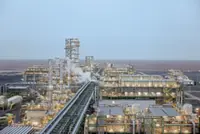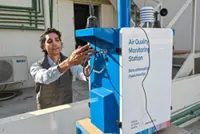A SQM lithium plant in Salar de Atacama, Chile. — ©️2023 The New York Times Company
EAGER to avoid falling further behind Tesla and Chinese car companies, many Western auto executives are bypassing traditional suppliers and committing billions of dollars on deals with lithium mining companies.
They are showing up in hard hats and steel-toed boots to scope out mines in places like Chile, Argentina, Quebec and Nevada to secure supplies of a metal that could make or break their companies as they move from gasoline to battery power.





